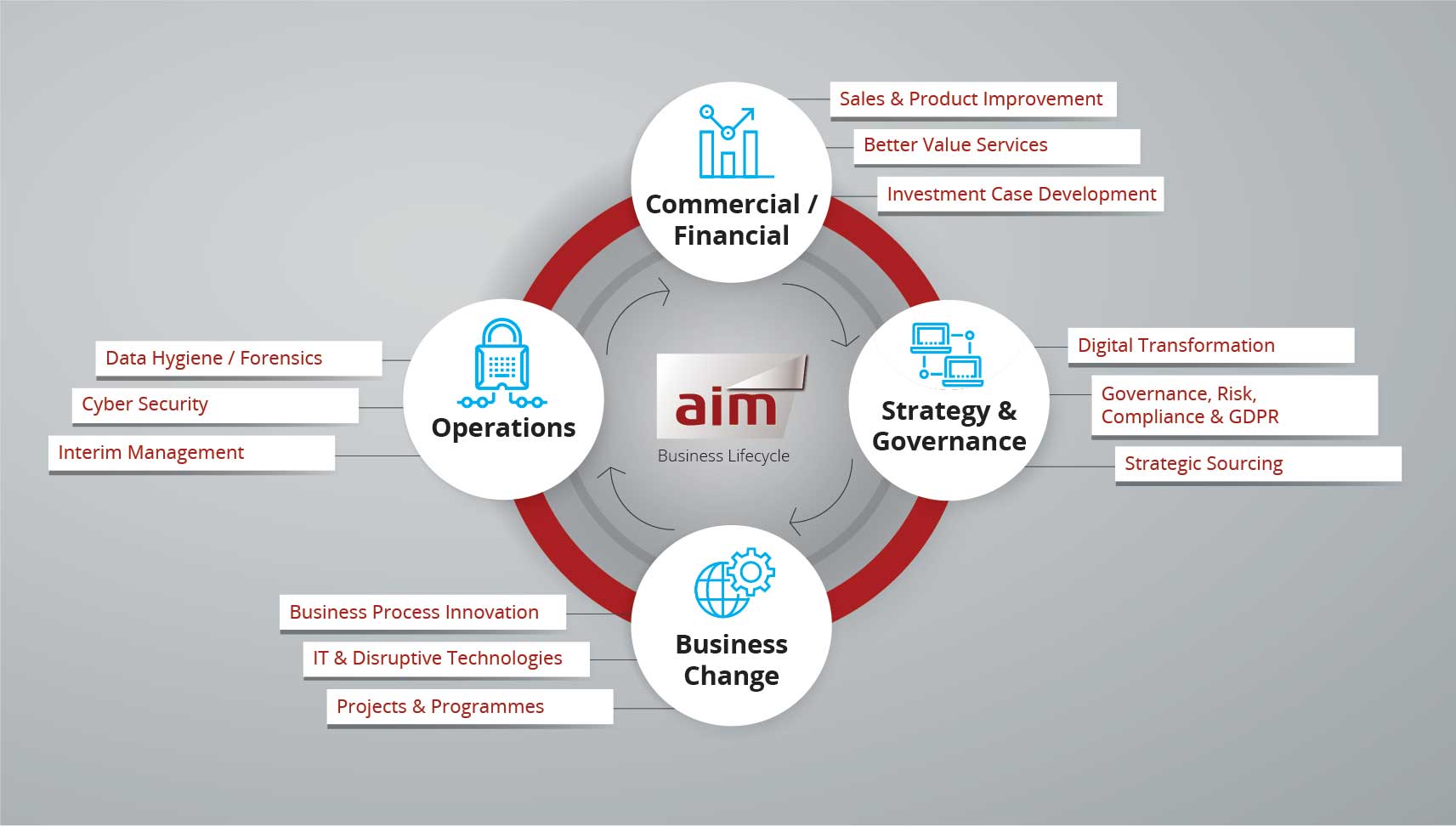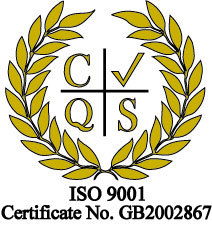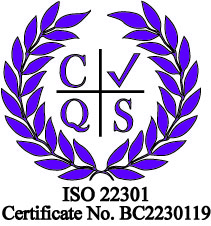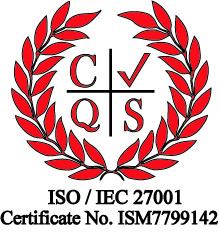Aim Ltd is a UK based international business to business service provider focusing on all aspects of change management by providing a fusion of business services and technology solutions.

What We Do
Our fusion of business services and technology solutions works seamlessly to the benefit of our clients who are our one focus.
We deliver unique and measurable value to organisations because we understand the business and IT lifecycles and can provide insight and support at all stages – from strategy to operation. We have extensive experience working in different industries across the private, public and third sectors.
As a company we embrace equality and diversity in our work force, have a corporate social responsibility programme in place and are committed to doing what we can to promote green IT, so helping reduce the carbon footprint of office technology.
Meet the team and see how we work
ISO Certifications
Quality
Aim has BS EN ISO 9001:2015 quality standard certification. Our certificate number is GB2002867.

Business Continuity
Aim has BS EN ISO 22301:2012 business continuity certification. Our certificate number is BC2230119.

Information Security
Aim has ISO/IEC 27001:2022 Information Security Management certification.
Aim also has ISO/IEC 27017:2021 Cloud platforms and SaaS services.
Our certificate number is ISM7799142.

We are re-audited each year to make sure that everything is in order and that we can justify retention of the certificate. Our independent auditor is Certified Quality Systems Ltd.
Cyber Essentials certification
Aim is accredited in the National Cyber Security Centre’s Cyber Essentials. This means our systems are certified as safe from Hacking, Phishing and Brute force password attacks. Cyber Essentials is a mandated requirement to work with government entities that may involve the handling of sensitive or personal information.

What makes us different
Because our teams work closely with our clients and their staff and often perform demanding operational roles, we only assign working practitioners with proven track records.
This means that our people hit the ground running, providing you with the assurance of continuity and delivery. Using an Aim service as a measured response ensures that best and focused use of your resources are made at point of greatest need.

Industries
Aim works in the UK, European and global market sectors, and most of our clients are in the FTSE 350:
- Accountancy
- Airlines
- Central government
- Charities and not-for-profit organisations
- Community services
- Fast moving consumer goods
- Financial services, building societies and merchant banks
- Financial Regulator
- Heavy civil engineering
- IT and BPO outsourcing industries
- Insurance
- Legal
- Education
- Manufacturing
- Marketing agencies
- Mobile telephone industry
- Oil industry
- Pensions providers, administrators and trustees
- Real estate and business parks
- Shipping and chandlery
- Shipping and Logistics
- Software/hi-tech electronics
- Travel industry
- Telecommunications industry
- UK sport governing bodies.

Federated Governance Cloud
Increasingly we are seeing the functional and process boundaries coming down between the different disciplines operating in the data governance and regulatory space.
So data compliance, risk, cyber security, data protection/GDPR, data classification, business data continuity and resilience are now forming part of a federated 'governance cloud' where boundaries are no longer clearly defined.
But organisations are still operating in vertical pillars rather than recognising the move towards process convergence. So not only is there an operational schism, but most software tools supporting these disciplines remain vertically aligned, leading to inherent process risk. Time perhaps for stakeholders to take a step back and work towards the future trend.
See how our data solutions cross the silo divide.

